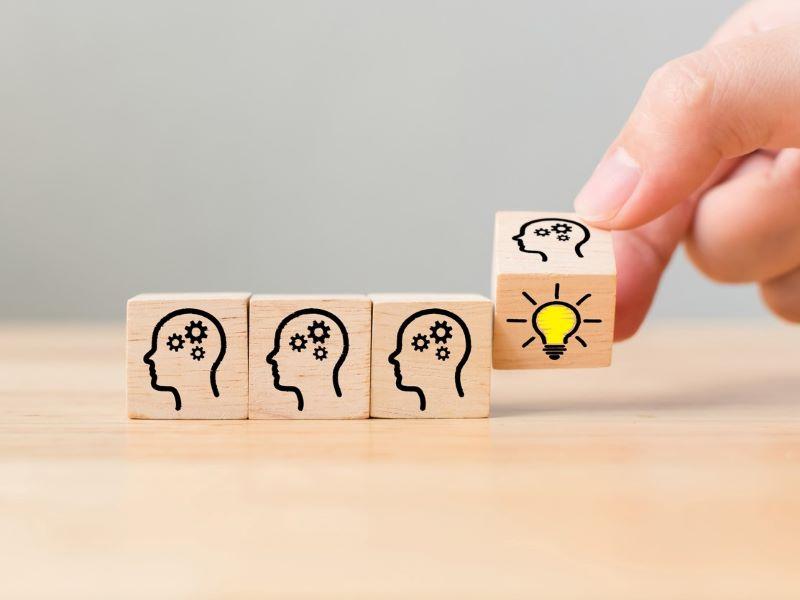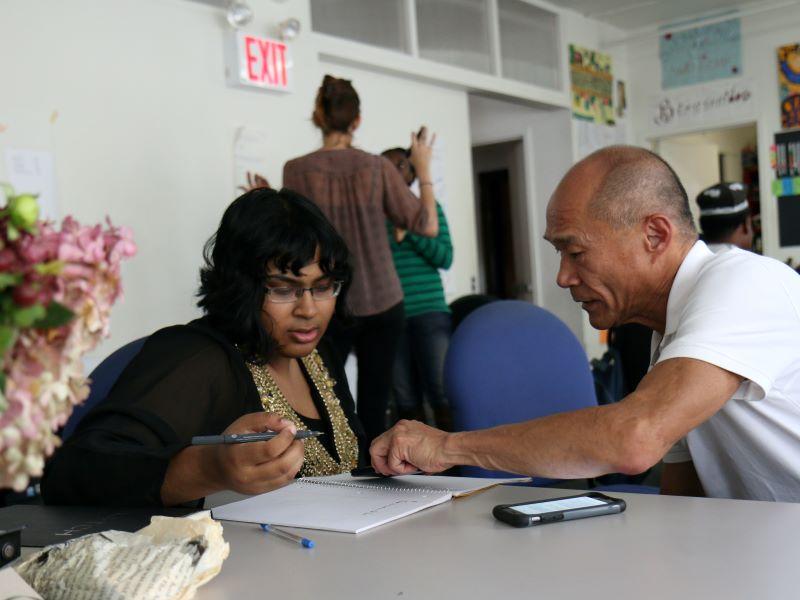Perhaps the greatest challenge and opportunity of a university education is the integration of knowledge into a sense of self and being. Gaining a broader world view while navigating challenging experiences and new ideas is core to student success. The process involves wondering, questioning and developing an understanding of what higher educational experiences mean for an emerging professional identity. More broadly, there is development of understanding what this process of “becoming” means to life within community, society and the world. Despite its importance, little guidance is available about how best to facilitate this.
Higher education is about more than knowledge itself: it’s about how that knowledge can transform a student’s identity and sense of self. A standard in university education has been a huge focus on knowledge acquisition. Often little room is left for understanding the broader philosophical implications of knowledge acquisition and integration into one’s life. The balance between knowledge gain and understanding within a broader context can vary according to disciplinary norms as well.
Why we developed the Higher Education Learning Framework
The Higher Education Learning Framework (HELF) is a resource that synthesises existing educational frameworks, literature and insights from experts in higher education. Using a science-of-learning lens, the HELF outlines seven learning principles, including “Learning as becoming”. While not prescriptive, the HELF can help frame the way we think about and design teaching and learning in higher education. It includes useful, evidence-informed applications for teachers and students, as well as theoretical overviews of each learning principle.
- Principle 2: Contextual learning: linking learning to the real world
- Principle 3: Emotions and learning: what role do emotions play in how and why students learn?
- Principle 4: Interactive learning: more than teamwork makes the dream work
Learning is a process of becoming
The principle of “Learning as becoming” encompasses how the higher education learning experience can transform learners. Students continue to develop their self-identity and how they relate to the world as they “become” professionals and lifelong learners. In other words, students continue to develop their understanding of being and how it is that they know what they know.
“Learning as becoming” highlights how a higher education experience can help students acquire and integrate knowledge and skills, building capacity for creative and critical thinking, and linking learning and thinking to their application in the world of work. A balance between the two in a university education experience not only enhances the experience for students but also frames higher education as more than a box to be ticked and then forgotten about once graduates enter the workplace.
How can we implement “Learning as becoming” into higher education?
- Identify topics in your curriculum that may be conceptually or philosophically transformative for students. Present these key topics to students. They may be highlighted in the learning objectives. Ask your students what aspects of their studies they found transformative.
- Think about how your classes matter to students. How do they influence students’ self-identity and emerging professional identity? How do students understand what it means to be a practitioner or professional? Design learning activities, assessment and discussions to explore these ideas. For example, provide opportunities for students to explore how the classes influence and impact their self-identity, assumptions, beliefs, interactions with others, perceptions and behaviour inside and outside the classroom.
- Incorporate self-reflection into learning activities or assessment. How can students influence community and society? How can society and community influence them? If this is a regular element throughout their course of study, students can read back on previous reflections to see how their understanding has developed. Self-reflection activities can be formally integrated as an activity during class or as a question as part of an argumentative essay.
- Create learning activities and assessments related to community and societal contexts. How can students transfer their knowledge into those contexts? How would a student explain to the public the knowledge and skills gained in their degree? How can they use their knowledge and skills to impact the community? How can they address issues in the community that are both within and outside their area of study?
- Discuss the conditional nature of knowledge. How do we know what we know? How does the unknown become known? How has knowledge been gained in your discipline area? How does knowledge advance? How are advances in knowledge reconciled in your discipline? How might future advances affect students professionally?
- Explore examples of lifelong learning within the professional discipline area. How have practitioners continued to engage in education or professional development in their career? How do they keep up with and react to advances and changes in the field?
A higher education provides a learning experience that broadens students’ knowing and being for life beyond the classroom
By supporting students through their post-secondary experience and transformational journey, educators can get students thinking about education beyond “What do I need to know to pass this test?” Education is a part of life, and learning is lifelong. It continues within different contexts and environments. Higher education is simply one of those contexts.
Annemaree Carroll is head of the Science of Learning Research Centre Learning Lab; Stephanie MacMahon is programme director of the Learning Lab; Jason M. Lodge and Alexandra Osika are leading the Learning Lab’s work in higher education. The Science of Learning Research Centre Learning Lab, situated within the School of Education at the University of Queensland, brings together multidisciplinary researchers and interprofessional partners with the aim of transforming learning across the lifespan.
If you found this interesting and want advice and insight from academics and university staff delivered direct to your inbox each week, sign up for the Campus newsletter.




comment1
(No subject)